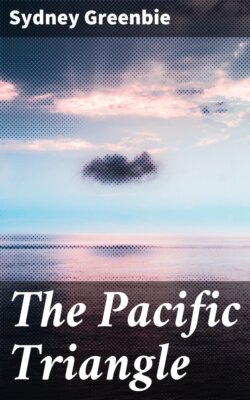Читать книгу The Pacific Triangle - Sydney Greenbie - Страница 24
На сайте Литреса книга снята с продажи.
1
ОглавлениеFiji is to the Pacific what the eye is to the needle. Swift as are the vessels which thread the largest ocean on earth, travelers who do more than pass through Fiji on their way between America and the Antipodes are few. Yet the years have woven more than a mere patchwork of romance round these islands. In climate they are considered the most healthful of the South Sea groups, though socially and from the point of view of our civilization they do not occupy the same place in our sentiments as do Samoa, Tahiti, the Marquesas, and the Sandwich Islands. Largely, I suppose, because of the ethnological accident that planted there a race of people that is farther from Europeans than the Polynesians. The Fijians are Melanesians, a negroid people said by some to be a "sub-branch" of the Polynesians. They have been slightly mixed through their contact with the Tongans and the Samoans, but they are not definitely related to either and full mixture is unlikely.
A century ago a number of Australian convicts escaped to Fiji. They brought to these savage cannibal islanders all the viciousness and arrogance of their type, and imposed themselves upon the primitive natives. The effect was not conducive of the best relations between white people and natives, nor did it have an elevating influence upon the latter. However, despite their cannibalism and their unwillingness to yield to the influence of our benign civilization, the Fijians are a people in many ways superior to both the Polynesians east of them and the true Melanesians or Papuans to the west. They are more moral; they are cleanly; their women occupy a better position in relation to their men; and in character and skill they are superior to their neighbors. I was impressed with this dignity of the Fijians, conscious and unconscious, from the time I first laid eyes on them. I felt that, notwithstanding all that was said about them, here was a people that stood aloof from mere imitation.
Yet such is the nature of reputation that when I announced my intention of breaking my journey from Honolulu to Australia at Fiji, my fellow-passengers were inclined to commiserate with me. They wondered how one with no special purposes—that is, without a job—could risk cutting loose from his iron moorings in these savage isles. Had they not read in their school geographies of jungles and savages all mixed and wild, with mocking natives grinning at you from behind bamboo-trees, living expectations of a juicy dinner? They warned me about dengue fever; they extolled the virtues of the Fijian maidens, and exaggerated the vices of the Fijian men. The word "cannibals" howled round my head as the impersonal wind had howled round the masts of the steamer one night. But the adventurer soon learns that there is none so unknowing as the average globe-trotters (the people who have been there); so he listens politely and goes his own way.
When, therefore, I got the first real whiff of tropical sweetness, mixed though it was with copra and mold, all other considerations vanished. From the cool heights the hills looked down in pity upon the little village of Suva as it lay prostrate beneath the sun. If there was any movement to be seen, it was upon the lapping waters of the harbor, where numerous boats swarmed with black-bodied, glossy-skinned natives in that universal pursuit of life and happiness. As the Niagara sidled up to the pier and made fast her hawsers, these black fellows rushed upon her decks and into the holds like so many ants, and what had till then been inanimate became as though possessed.
